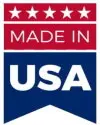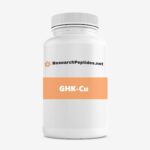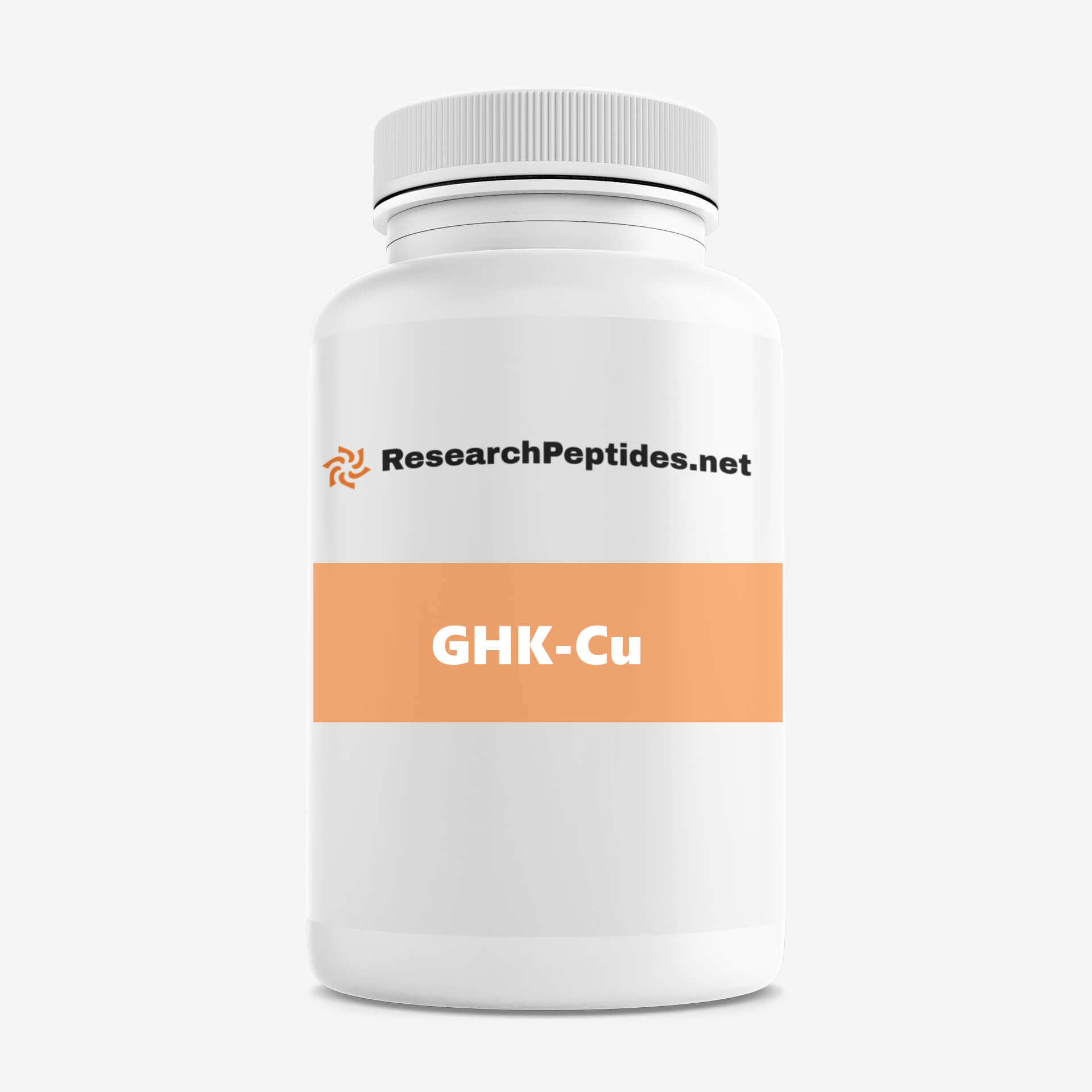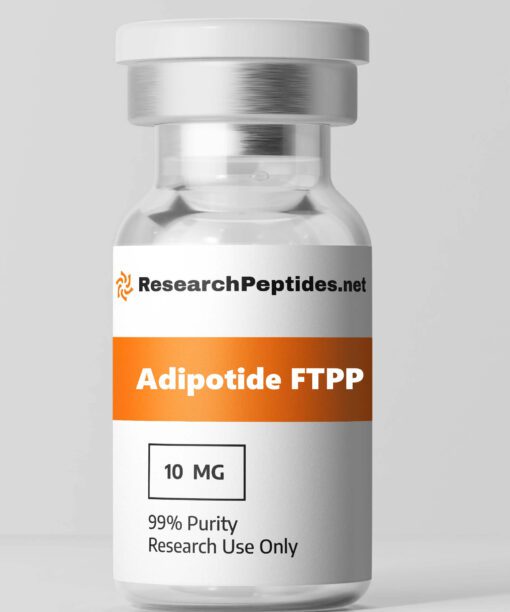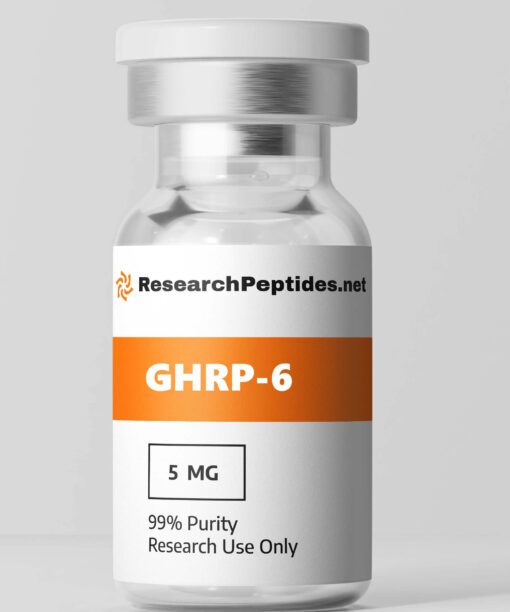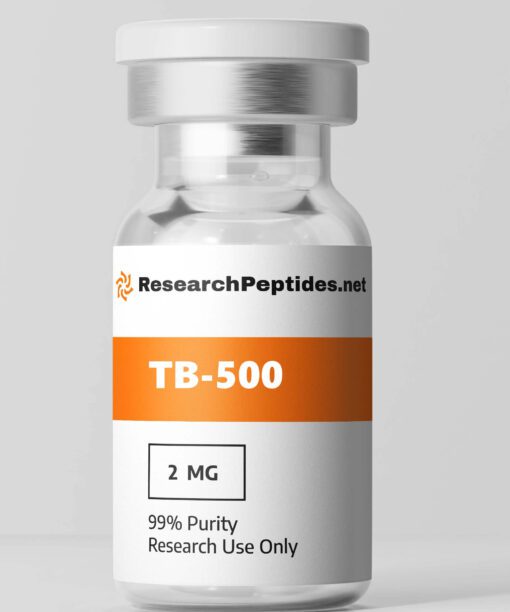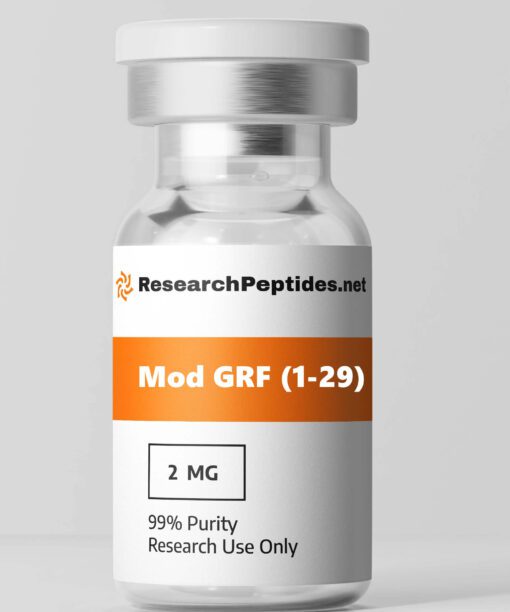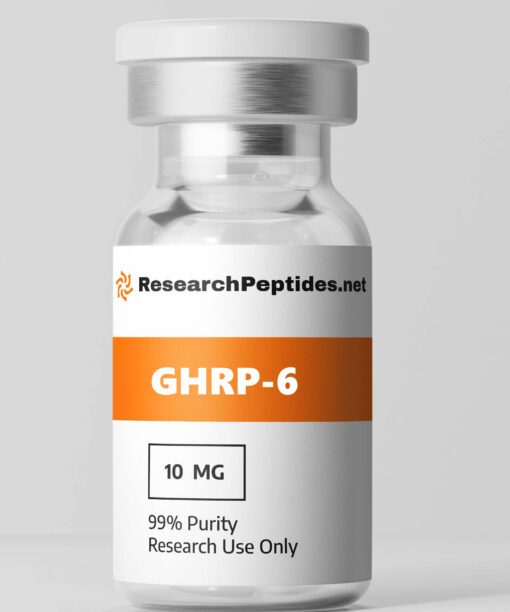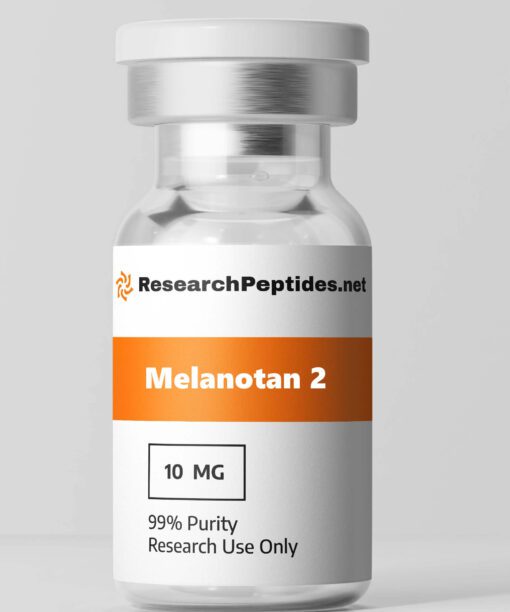Introducing GHK-Cu (Copper Peptide) (Capsules), a groundbreaking research product backed by extensive studies. This remarkable peptide has shown exceptional promise in promoting skin rejuvenation and enhancing overall skin health. With proven benefits, GHK-Cu offers a transformative solution to achieve youthful and radiant skin effortlessly.
1. What is GHK-Cu (Copper Peptide) (Capsules)?
GHK-Cu (Copper Peptide) is a peptide compound that consists of the amino acids glycine, histidine, and lysine, along with a copper ion. It has gained attention in the skincare industry for its potential benefits in promoting wound healing, collagen production, and skin rejuvenation.
When applied Capsulesly, GHK-Cu (Copper Peptide) can penetrate the skin barrier and interact with cells to stimulate various cellular processes. Research studies have shown that GHK-Cu (Copper Peptide) can enhance the synthesis of extracellular matrix proteins such as collagen and elastin. These proteins play a crucial role in maintaining the structural integrity and elasticity of the skin.
Additionally, GHK-Cu (Copper Peptide) has been found to have antioxidant properties, which can help protect the skin from oxidative damage caused by free radicals. In non-human research studies, GHK-Cu (Copper Peptide) has also demonstrated anti-inflammatory effects and the ability to regulate gene expression related to tissue repair and regeneration.
These findings suggest that GHK-Cu (Copper Peptide) may have potential therapeutic applications beyond skin care, such as in wound healing or tissue engineering. However, further research is needed to fully understand its mechanisms of action and explore its potential uses in humans.
2. How Does GHK-Cu (Copper Peptide) (Capsules) Work?
GHK-Cu (Copper Peptide)’s mechanism of action involves its interaction with copper ions within cells. Copper ions are essential cofactors for many enzymes involved in various cellular processes, including collagen synthesis, angiogenesis, and antioxidant defense.
GHK-Cu (Copper Peptide) acts as a carrier molecule for copper ions, facilitating their transport into cells and promoting their availability for enzymatic reactions. Once inside the cells, GHK-Cu (Copper Peptide) can bind to specific receptors on the cell surface, triggering intracellular signaling pathways.
These pathways can lead to the activation of genes involved in collagen production, wound healing, and tissue repair. GHK-Cu (Copper Peptide) has also been shown to modulate the expression of metalloproteinases, enzymes that play a role in remodeling the extracellular matrix.
Furthermore, GHK-Cu (Copper Peptide) has been found to have antioxidant properties. It can scavenge free radicals and inhibit lipid peroxidation, thereby reducing oxidative stress in the skin. This antioxidant activity may contribute to its ability to protect against UV-induced damage and promote skin rejuvenation.
Overall, GHK-Cu (Copper Peptide)’s multifaceted mechanism of action involves copper ion transport, receptor binding, gene modulation, and antioxidant activity. These processes collectively contribute to its potential benefits in promoting healthy skin function and appearance.
3. GHK-Cu (Copper Peptide) (Capsules) Benefits
GHK-Cu (Copper Peptide) has shown a range of potential benefits in non-human research studies:
1. Wound Healing: GHK-Cu (Copper Peptide) has been found to accelerate wound healing by promoting angiogenesis (the formation of new blood vessels), stimulating fibroblast migration and proliferation, and enhancing collagen synthesis. These effects can help improve the overall healing process and reduce scar formation.
2. Collagen Production: GHK-Cu (Copper Peptide) has been shown to stimulate the synthesis of collagen types I and III, which are essential components of the extracellular matrix responsible for maintaining skin structure and elasticity. Increased collagen production can help improve skin firmness, smooth out wrinkles, and enhance overall skin texture.
3. Skin Rejuvenation: GHK-Cu (Copper Peptide) has demonstrated antioxidant properties, protecting the skin from oxidative damage caused by free radicals. It also helps to stimulate the production of glycosaminoglycans and proteoglycans, which are important for maintaining skin hydration and elasticity. These effects contribute to a more youthful appearance and improved skin tone.
4. Anti-Inflammatory Effects: GHK-Cu (Copper Peptide) has been shown to reduce inflammation by inhibiting the release of pro-inflammatory cytokines and modulating immune responses. This anti-inflammatory activity can help alleviate redness, swelling, and other signs of inflammation in the skin.
It is important to note that while these benefits have been observed in non-human research studies, further clinical trials are needed to confirm their effectiveness in humans and determine optimal dosage and application methods.
4. GHK-Cu (Copper Peptide) (Capsules) Side Effects
GHK-Cu (Copper Peptide) is a popular ingredient in skincare products due to its potential benefits for skin health and rejuvenation. However, like any other Capsules treatment, it is important to be aware of the possible side effects that may occur.
One of the most commonly reported side effects of GHK-Cu (Copper Peptide) is skin irritation or sensitivity. Some individuals may experience redness, itching, or a burning sensation upon application. This can be particularly problematic for those with sensitive skin or pre-existing skin conditions such as eczema or rosacea. In rare cases, allergic reactions may occur in response to GHK-Cu (Copper Peptide).
Symptoms of an allergic reaction can include swelling, hives, and difficulty breathing. If you experience any of these symptoms after using a product containing GHK-Cu (Copper Peptide), it is important to discontinue use immediately and seek medical attention. It is also worth noting that excessive use of GHK-Cu (Copper Peptide) products can potentially disrupt the natural balance of the skin’s microbiome. This can lead to imbalances in oil production and moisture levels, resulting in dryness or increased acne breakouts.
To minimize the risk of side effects, it is recommended to perform a patch test before applying GHK-Cu (Copper Peptide) products to your entire face or body. Apply a small amount on a discreet area of your skin and observe for any adverse reactions over 24-48 hours. Overall, while GHK-Cu (Copper Peptide) has shown promising results in skincare research, it is essential to be aware of potential side effects and use these products cautiously.
Consulting with a dermatologist or skincare professional can provide personalized advice based on your specific skin type and concerns.
5. Advantages of GHK-Cu (Copper Peptide) (Capsules)
GHK-Cu (Copper Peptide) has gained attention in the skincare industry for its potential advantages and benefits for skin health. Here are some of the key advantages associated with the Capsules use of GHK-Cu (Copper Peptide):
1. Skin rejuvenation: GHK-Cu (Copper Peptide) has been found to stimulate collagen production, which is essential for maintaining skin elasticity and firmness. This can help reduce the appearance of fine lines, wrinkles, and sagging skin, resulting in a more youthful complexion.
2. Wound healing: Studies have shown that GHK-Cu (Copper Peptide) possesses wound-healing properties. It can accelerate the healing process by promoting angiogenesis (formation of new blood vessels), increasing cell proliferation, and reducing inflammation at the site of injury.
3. Antioxidant activity: GHK-Cu (Copper Peptide) exhibits antioxidant properties, helping to protect the skin from oxidative stress caused by free radicals. This can prevent premature aging and damage caused by environmental factors such as UV radiation and pollution.
4. Anti-inflammatory effects: GHK-Cu (Copper Peptide) has been shown to possess anti-inflammatory properties, which can help calm irritated or inflamed skin conditions such as acne, rosacea, or eczema.
5. Skin firming and tightening: Regular use of GHK-Cu (Copper Peptide) products may improve skin elasticity and promote a firmer complexion due to its ability to enhance collagen synthesis.
It is important to note that individual results may vary, and it is recommended to consult with a dermatologist or skincare professional before incorporating GHK-Cu (Copper Peptide) products into your skincare routine to ensure suitability for your specific needs.
6. GHK-Cu (Copper Peptide) (Capsules) Research Topics
GHK-Cu (Copper Peptide) has been the subject of numerous research studies due to its potential benefits for skin health and rejuvenation. Some of the key research topics related to GHK-Cu (Copper Peptide) include:
1. Collagen synthesis: Researchers have investigated the mechanisms by which GHK-Cu (Copper Peptide) stimulates collagen production in the skin. Understanding these processes can provide insights into potential therapeutic applications for wound healing and anti-aging treatments.
2. Anti-inflammatory effects: Studies have explored the anti-inflammatory properties of GHK-Cu (Copper Peptide) and its potential use in managing inflammatory skin conditions such as acne, rosacea, and dermatitis.
3. Wound healing mechanisms: Researchers have examined how GHK-Cu (Copper Peptide) promotes wound healing by stimulating angiogenesis, cell proliferation, and extracellular matrix remodeling.
4. Skin barrier function: The impact of GHK-Cu (Copper Peptide) on the skin’s barrier function has been investigated, including its ability to enhance moisture retention and protect against environmental stressors.
5. Combination therapies: Some studies have explored the synergistic effects of combining GHK-Cu (Copper Peptide) with other skincare ingredients or treatments to enhance their efficacy in addressing specific skin concerns.
These research topics contribute to our understanding of the potential applications and mechanisms of action of GHK-Cu (Copper Peptide), paving the way for further advancements in skincare science.
7. Future Research Directions for GHK-Cu (Copper Peptide) (Capsules)
As research on GHK-Cu (Copper Peptide) continues to evolve, several future directions can be identified for further exploration:
1. Clinical trials: Conducting large-scale clinical trials can provide more robust evidence regarding the efficacy and safety of GHK-Cu (Copper Peptide) in various skincare applications. These trials can help establish optimal dosage, treatment duration, and potential side effects.
2. Mechanistic studies: Further investigation into the underlying mechanisms of action of GHK-Cu (Copper Peptide) can shed light on its specific interactions with skin cells, signaling pathways, and gene expression. This knowledge can lead to the development of targeted therapies and optimized formulations.
3. Combination therapies: Exploring the synergistic effects of combining GHK-Cu (Copper Peptide) with other skincare ingredients or treatments may uncover novel approaches for addressing specific skin concerns more effectively.
4. Long-term effects: Long-term studies assessing the sustained benefits and potential risks associated with prolonged use of GHK-Cu (Copper Peptide) are necessary to ensure its safety and efficacy over extended periods.
5. Bioavailability optimization: Investigating methods to enhance the bioavailability and penetration of GHK-Cu (Copper Peptide) into the deeper layers of the skin can improve its effectiveness in delivering desired outcomes.
Future research endeavors in these areas will contribute to a deeper understanding of GHK-Cu (Copper Peptide)’s potential applications, mechanisms, and optimal utilization in skincare practices.
8. GHK-Cu (Copper Peptide) (Capsules) Before and After in Research
Before-and-after studies are commonly conducted to evaluate the effectiveness of GHK-Cu (Copper Peptide) in improving various skin conditions or concerns. These studies typically involve comparing photographs or measurements taken before treatment initiation with those obtained after a specified period. In research investigating the effects of GHK-Cu (Copper Peptide), before-and-after assessments have demonstrated several positive outcomes:
1. Reduction in fine lines and wrinkles: Images taken before treatment initiation and after a designated period have shown a visible reduction in the appearance of fine lines and wrinkles, indicating the potential anti-aging benefits of GHK-Cu (Copper Peptide).
2. Improvement in skin texture: Researchers have observed improvements in skin texture, including increased smoothness and refinement, as evidenced by before-and-after photographs or objective measurements.
3. Enhanced skin firmness: Before-and-after evaluations have revealed improvements in skin firmness and elasticity following GHK-Cu (Copper Peptide) treatment, suggesting its potential for promoting a more youthful complexion.
4. Reduction in hyperpigmentation: Studies have documented a decrease in hyperpigmentation or uneven skin tone through visual assessments or colorimetric measurements taken before and after GHK-Cu (Copper Peptide) application.
It is important to note that individual responses may vary, and results can be influenced by factors such as treatment duration, the concentration of GHK-Cu (Copper Peptide), the formulation used, and the specific skin condition being addressed. Consulting with a dermatologist or skincare professional can provide personalized guidance based on your unique needs.
9. GHK-Cu (Copper Peptide) (Capsules) Cycle for Research
In research studies involving GHK-Cu (Copper Peptide), a specific cycle or treatment regimen is often followed to assess its effects systematically. The duration and frequency of the cycle can vary depending on the research objectives and design. Here is an example of a typical GHK-Cu (Copper Peptide) cycle for research:
1. Treatment initiation: Participants begin applying the GHK-Cu (Copper Peptide) product according to the study protocol. This may involve cleansing the skin thoroughly before application.
2. Duration of treatment: The duration of the treatment phase can range from several weeks to several months, depending on the study’s objectives and desired outcomes.
3. Frequency of application: GHK-Cu (Copper Peptide) products are typically applied once or twice daily, as specified in the study protocol. Consistency in application is crucial to assess the compound’s potential benefits accurately.
4. Evaluation and measurements: Throughout the research cycle, participants may undergo regular evaluations and measurements to track changes in their skin condition. These assessments can include visual inspections, photography, objective measurements of parameters such as wrinkle depth or skin hydration levels, and subjective assessments through participant feedback.
5. Follow-up period: After completing the treatment phase, a follow-up period may be included to evaluate any sustained effects or potential regression once GHK-Cu (Copper Peptide) usage is discontinued.
It is important to note that specific research protocols may vary depending on the study design and objectives. Consulting published research articles or contacting the researchers directly can provide more detailed information about the specific GHK-Cu (Copper Peptide) cycles used in various studies.
10. Best GHK-Cu (Copper Peptide) (Capsules) Results in Research
Research studies investigating GHK-Cu (Copper Peptide) have reported several positive results regarding its potential benefits for skin health and rejuvenation. Some of the best outcomes observed in research include:
1. Improved skin elasticity: GHK-Cu (Copper Peptide) has been shown to enhance collagen synthesis, leading to improved skin elasticity and firmness. This can result in a more youthful appearance with reduced sagging or laxity.
2. Reduction in fine lines and wrinkles: Studies have demonstrated that GHK-Cu (Copper Peptide) can help reduce the appearance of fine lines and wrinkles by stimulating collagen production and promoting dermal remodeling.
3. Accelerated wound healing: The wound-healing properties of GHK-Cu (Copper Peptide) have been well-documented in research. It can promote angiogenesis, increase cell proliferation, and reduce inflammation, leading to faster healing of wounds.
4. Enhanced skin barrier function: GHK-Cu (Copper Peptide) has been found to improve the skin’s barrier function by enhancing moisture retention and strengthening the protective lipid layer. This can result in improved hydration levels and protection against environmental stressors.
5. Reduction in hyperpigmentation: Research studies have shown that GHK-Cu (Copper Peptide) can help reduce hyperpigmentation or uneven skin tone by regulating melanin production and promoting a more even complexion.
It is important to note that individual responses may vary, and results can be influenced by factors such as treatment duration, the concentration of GHK-Cu (Copper Peptide), the formulation used, and the specific skin condition being addressed. Consulting with a dermatologist or skincare professional can provide personalized guidance based on your unique needs.
11. Where to Buy GHK-Cu (Copper Peptide) (Capsules)?
GHK-Cu (Copper Peptide) products are available from various sources, including online retailers, specialty skincare stores, and dermatology clinics. When looking to purchase GHK-Cu (Copper Peptide) products, it is essential to ensure their quality and authenticity. Here are some recommended options for purchasing GHK-Cu (Copper Peptide) Capsules:
1. Authorized retailers: Purchase GHK-Cu (Copper Peptide) products from authorized retailers or official websites of reputable skincare brands known for their commitment to quality and safety.
2. Dermatology clinics: Consult with a dermatologist or skincare professional who can recommend trusted brands or prescribe customized formulations containing GHK-Cu (Copper Peptide).
3. Online marketplaces: If purchasing online, opt for well-established platforms that have strict seller verification processes and customer reviews to ensure product authenticity and quality.
4. Skincare specialty stores: Visit skincare specialty stores that carry a curated selection of high-quality skincare products, including those containing GHK-Cu (Copper Peptide).
When purchasing GHK-Cu (Copper Peptide) Capsules, it is important to read product labels, check for ingredient lists, and consider factors such as concentration, formulation type (e.g., serum, cream), and suitability for your specific skin concerns. Consulting with a dermatologist or skincare professional can provide personalized recommendations based on your unique needs.
12. GHK-Cu (Copper Peptide) (Capsules) for Sale
GHK-Cu (Copper Peptide) Capsules are available for sale from various sources, including online retailers, specialty skincare stores, and dermatology clinics. These products come in different formulations such as serums, creams, or masks. When considering purchasing GHK-Cu (Copper Peptide) Capsules, it is important to ensure their quality and authenticity.
GHK-Cu, commonly known as Copper Peptide, is a naturally occurring tripeptide that has garnered significant attention in the scientific community for its potential therapeutic properties. Now available in capsule form, GHK-Cu (Copper Peptide) (Capsules) are being offered for sale by ResearchPeptides.net, a reputable provider in the field of research peptides.
These capsules are designed for research purposes, ensuring that researchers and scientists have access to high-quality GHK-Cu for their investigative studies. With ResearchPeptides’ commitment to excellence, those interested can be assured of the product’s purity and efficacy.
Overall, the research on GHK-Cu (Copper Peptide) (Capsules) indicates promising results. Studies have consistently demonstrated its potential to improve skin health and appearance. From reducing wrinkles and promoting collagen production to enhancing wound healing and reducing inflammation, GHK-Cu (Copper Peptide) has shown itself to be a valuable ingredient in Capsules skincare products. Its positive effects make it a compelling option for individuals seeking effective solutions for various skin concerns.
Frequently Asked Questions About GHK-Cu (Copper Peptide) (Capsules) Peptides April 2024
Does GHK-CU activate stem cells?
Subsequently, when GHK accumulates copper 2+ ions, GHK-Cu promotes the differentiation of stem cells.
Do you use copper peptide before or after moisturizer?
According to DECIEM, when using their copper peptide products like The Ordinary Buffet Copper Peptides, it is recommended to apply them as the initial step after cleansing and before any other serums or creams, both in the morning and evening.
What can you layer copper peptides with?
According to the expert, it is recommended to use copper peptides along with hydrating ingredients like hyaluronic acid and glycerin. These ingredients function as humectants to attract moisture to the skin’s protective barrier. This promotes a healthy barrier, which is important for various reasons, such as maintaining skin moisture and elasticity.
Do you use moisturizer after copper peptides?
Recommended usage of copper peptides suggests that they are not specifically enhanced when used alongside any particular ingredient. However, it is generally advised to use them together with a moisturizer that protects the skin barrier.
How do you use GHK-Cu Capsules?
What is the recommended dosage for GHK-CU peptide? The suggested dosage for injectables is 0.2mL administered subcutaneously once a day. For transdermal application on the scalp, it is recommended to apply 2-3 pumps once daily at night. Lastly, for transdermal application on the face, it is advised to apply 1-2 pumps and gently rub it on the face every night.
Can you overuse copper peptides?
Although Copper Peptides are milder than retinoids, it is important to avoid excessive use as it can lead to damage from free radicals and the breakdown of collagen. It should be noted that this ingredient can also have negative effects when combined directly with powerful antioxidants, acids, and retinoids.
Unlocking the Peptide Potential: Your Research Hub 2024
Discover a variety of peptide forms, including peptide structures, peptide assortments, IGF-1 Proteins, Melanotan formulations, and beauty peptide substances at our Peptides Vendor. Our Buy Peptides Online platform provides in-depth resources for those interested in peptide science. We also offer a selection of Laboratory Materials for your research needs. Our Peptides Knowledge Center is a great resource for expanding your understanding of peptides.
GHK-Cu (Copper Peptide) (Capsules) Research Scientists
- Ph.D L. Pickart
GHK-Cu (Copper Peptide) (Capsules)L. Pickart is a researcher who has extensively studied the human copper-binding peptide GHK-Cu. This naturally occurring plasma tripeptide has been shown to have multiple biological effects, including stimulating regeneration of various tissues, protecting the liver from oxidative damage, and modulating gene activity. One of their notable works includes the study titled “Modulation of Gene Expression in Human Breast Cancer MCF7 and Prostate Cancer PC3 Cells by the Human Copper-Binding Peptide GHK-Cu.”
L. Pickart’s research has been pivotal in understanding the therapeutic implications of GHK-Cu in various medical conditions. Their work has been published in renowned journals, and the findings have contributed significantly to the field of peptide research. doi:https://dx.doi.org/10.21926/OBM.GENET.2102128
- Ph.D K. Bossak‐Ahmad
GHK-Cu (Copper Peptide) (Capsules)K. Bossak‐Ahmad is a researcher who has delved into the study of the tripeptide GHK and its ability to bind copper ions. Their research has highlighted the potential physiological functions of the ternary complex formed by GHK, copper ions, and cis-urocanic acid. This complex may play a crucial role in the biological effects attributed to GHK and urocanic acid.
K. Bossak‐Ahmad’s contributions to the field have provided valuable insights into the interactions and potential therapeutic applications of GHK and copper ions. Their research has been published in esteemed journals, shedding light on the intricate molecular mechanisms involved. doi:https://dx.doi.org/10.3390/ijms21176190
References
- Pickart, L., Factoria Boulevard Se Suite Number Bellevue Wa Usa Skin Biology, & Margolina, A. (2021). Modulation of Gene Expression in Human Breast Cancer MCF7 and Prostate Cancer PC3 Cells by the Human Copper-Binding Peptide GHK-Cu. OBM Genetics. https://dx.doi.org/10.21926/OBM.GENET.2102128
- Bossak‐Ahmad, K., Wiśniewska, M. D., Bal, W., Drew, S., & Frączyk, T. (2020). Ternary Cu(II) Complex with GHK Peptide and Cis-Urocanic Acid as a Potential Physiologically Functional Copper Chelate. International Journal of Molecular Sciences. https://dx.doi.org/10.3390/ijms21176190
- Hsiao, C. D., Wu, H. H., Malhotra, N., Liu, Y. C., Wu, Y. H., Lin, Y., Saputra, F., Santoso, F., & Chen, K. H. (2020). Expression and Purification of Recombinant GHK Tripeptides Are Able to Protect against Acute Cardiotoxicity from Exposure to Waterborne-Copper in Zebrafish. Biomolecules. https://dx.doi.org/10.3390/biom10091202
- Pickart, L., Vasquez-Soltero, J. M., & Margolina, A. (2015). GHK-Cu may Prevent Oxidative Stress in Skin by Regulating Copper and Modifying Expression of Numerous Antioxidant Genes. Cosmetics. https://dx.doi.org/10.3390/COSMETICS2030236
GHK-Cu (Copper Peptide) (Capsules) Research Scientists
- Ph.D L. Pickart
GHK-Cu (Copper Peptide) (Capsules)L. Pickart is a renowned researcher who has extensively studied the human copper-binding peptide GHK-Cu. This naturally occurring plasma tripeptide has been shown to have multiple biological effects, including stimulating regeneration of various tissues, protecting the liver from oxidative damage, and modulating gene activity.
L. Pickart has a Ph.D and has made significant contributions to the field of peptide research. One of their notable works includes the study titled “Modulation of Gene Expression in Human Breast Cancer MCF7 and Prostate Cancer PC3 Cells by the Human Copper-Binding Peptide GHK-Cu.” doi:https://dx.doi.org/10.21926/OBM.GENET.2102128
- Ph.D K. Bossak‐Ahmad
GHK-Cu (Copper Peptide) (Capsules)K. Bossak‐Ahmad is a distinguished researcher who has delved into the study of the tripeptide GHK and its ability to bind copper ions. Their research has highlighted the potential physiological functions of the ternary complex formed by GHK, copper ions, and cis-urocanic acid.
K. Bossak‐Ahmad’s research has provided valuable insights into the interactions and potential therapeutic applications of GHK and copper ions. One of their significant publications is titled “Ternary Cu(II) Complex with GHK Peptide and Cis-Urocanic Acid as a Potential Physiologically Functional Copper Chelate.” doi:https://dx.doi.org/10.3390/ijms21176190
Share The GHK-Cu (Copper Peptide) (Capsules) Product Page
Product Usage: THIS PRODUCT IS INTENDED AS A RESEARCH CHEMICAL ONLY. This designation allows the use of research chemicals strictly for in vitro testing and laboratory experimentation only. All product information available on this website is for educational purposes only. This product has not been approved by the FDA for Human Use. Bodily introduction of any kind into humans or animals is strictly forbidden by law. This product should only be handled by licensed, qualified professionals. This product is not a drug, food, or cosmetic and may not be misbranded, misused or mislabeled as a drug, food or cosmetic.
Estimated Reading Time: 21 min read
